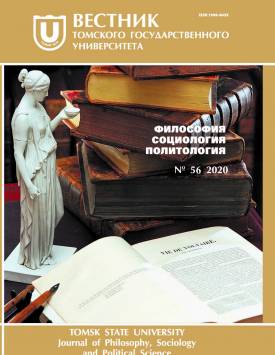The Philosophical Premises of Mathematical Discussions in the Context of the Critique of Kolmogorov's Conditions for Using Mathematics
The article examines the implicit philosophical premises in mathematical battles. It focuses on the critique of Kolmogorov's conditions, which are minimally represented in the known literature. The conditions are significant in the frequency interpretation, in the illustration of the thesis on the underestimation of philosophical ideas, and in the historical context. The main methodological question that guided the study is whether we can agree with subjectivists that Kolmogorov's requirement of the proximity of probability and frequency is described by the conclusion of Bernoulli's theorem. To answer this question, the requirements were formulated for using the theorem within the frequency approach, in which the theoretical probability of success of the tests, used in Bernoulli's theorem, is unknown and is constant by hypothesis. Using the fact and making no pretense to the generality of reasoning, the author assumed that, like in many real processes, the frequency characteristics of events occurring with constant probability turn out to be stable. In the simplest case, frequencies are stable if their values belong to an interval whose length is less than the measurement error. Here, any value from the interval is suitable as probability, and the requirement is satisfied. Thus, describing the conditions for the application of the theorem within the frequency approach, the author obtained a geometric interpretation of the requirement. The requirement turns out to be a consequence of the stability of frequencies; stability is an ontological characteristic of the world of experience, and it is a prerequisite for the application of the theorem, not its conclusion. If Kolmogorov can be viewed as a consistent representative of the frequency approach, then his requirement does not depend on the theorem. However, as the author has shown, he declared himself a follower of Mises for pragmatic reasons. Therefore, it can be assumed that his requirement is described by the conclusion of the theorem. Nevertheless, within the frequency approach, the bases for the application of the theorem in the subjectivist interpretation are rejected; therefore, Kolmogorov's condition does not depend on the theorem.
Keywords
неявные философские предпосылки, частотная интерпретация, субъективистская интерпретация, теорема Бернулли, независимость, устойчивость частот, implicit philosophical premises, frequency interpretation, subjectivist interpretation, Bernoulli's theorem, stability of frequenciesAuthors
| Name | Organization | |
| Reznikov Vladimir M. | Institute of Philosophy and Law of the Siberian Branch of the Russian Academy of Sciences | mathphil1976@gmail.com |
References

The Philosophical Premises of Mathematical Discussions in the Context of the Critique of Kolmogorov's Conditions for Using Mathematics | Tomsk State University Journal of Philosophy, Sociology and Political Science. 2020. № 56. DOI: 10.17223/1998863X/56/4
